By Jenn Snider
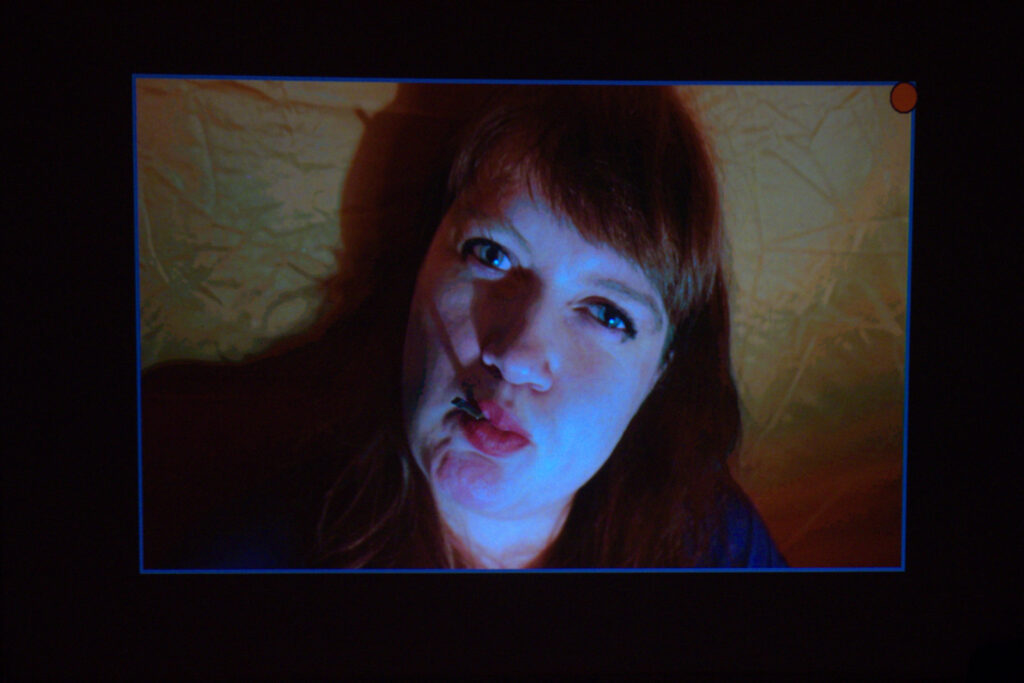
“Okay, so I’ll go and check the mirror, but can you tell me if my eyes are uneven?”
Anya Liftig has just asked me a confusing question, but as soon as I look at her I understand. She’s asking me if her eyeliner looks okay. I bend in and examine her handiwork.
“The one on this side is a bit thicker than the other.”
“A bit thicker?” she asks.
“Yeah, but not by much,” I assure her. “Nobody would notice unless they got really close.”
“Everyone is going to get close to my face,” she says and turns back to the mirror. A minute later she leaves the backstage area. I feel slightly bewildered, but an hour later I will totally understand. Indeed, we’re all about to closely examine her entire face. We’re about to Know it Well.
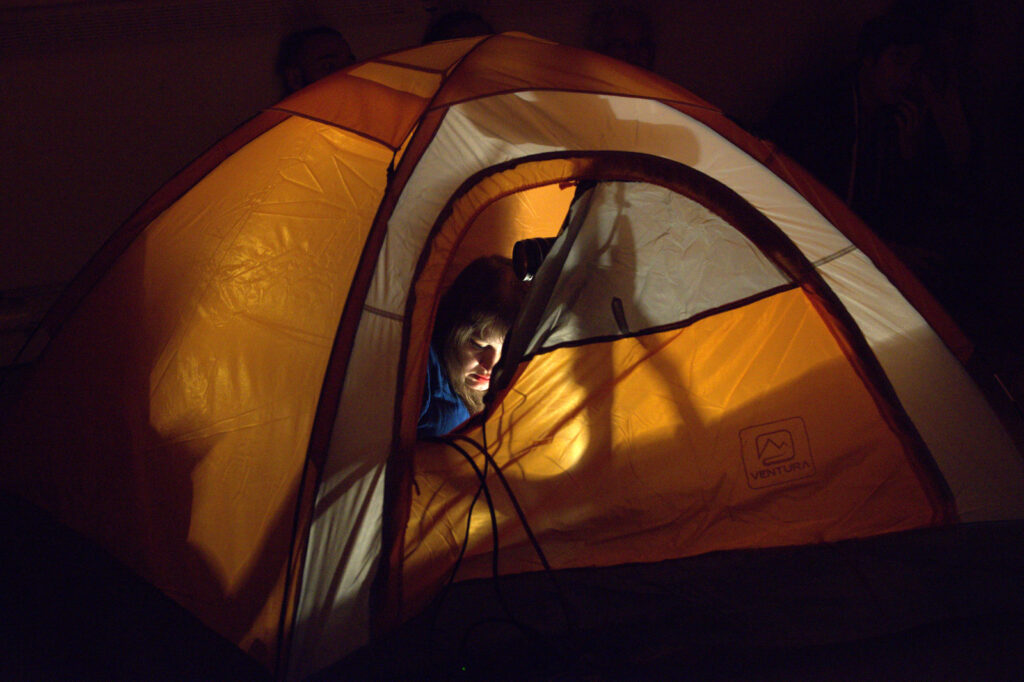
The lights go out and the orange tent in the middle of the room glows like a fake jack-o-lantern from Canadian Tire (it is, after all, the day before Hallow’een so forgive this timely simile). Inside, Anya Liftig is fussing about in this little place within the performing space. The sides of the tent rustle a bit here and there and a projection flickers onto the outside room’s wall. Liftig’s face appears, much much larger than life. Her eyeliner is even, her lips are dark red, and her big blue eyes stare. She’s watching the room and piercing its darkness and the effect is unsettling, and maybe as much for us as for her.
In her work, Liftig always begins with something that she finds terrifying. This time it is letting us get up close and personal with her face, or maybe it’s the terrifying idea of her isolation. All I know for sure is that while Anya Liftig cares about having symmetrical makeup, she is also interested in challenging personal boundaries and subjectivities, and in structuring her performance practice around her personal economics of space. The tent is practical and sized to scale. She’s a face dancer, and the tent is her studio.
Fixing her hair, self-consciously finger-combing it and patting it down, she ducks her head below the frame. Reappearing a second later we realize she’s cued the music. The melody is melancholy but catchy (a little godspeedyoublackemperor), but you wouldn’t know if from Liftig’s blank stare. That is, until her nose starts twitching.
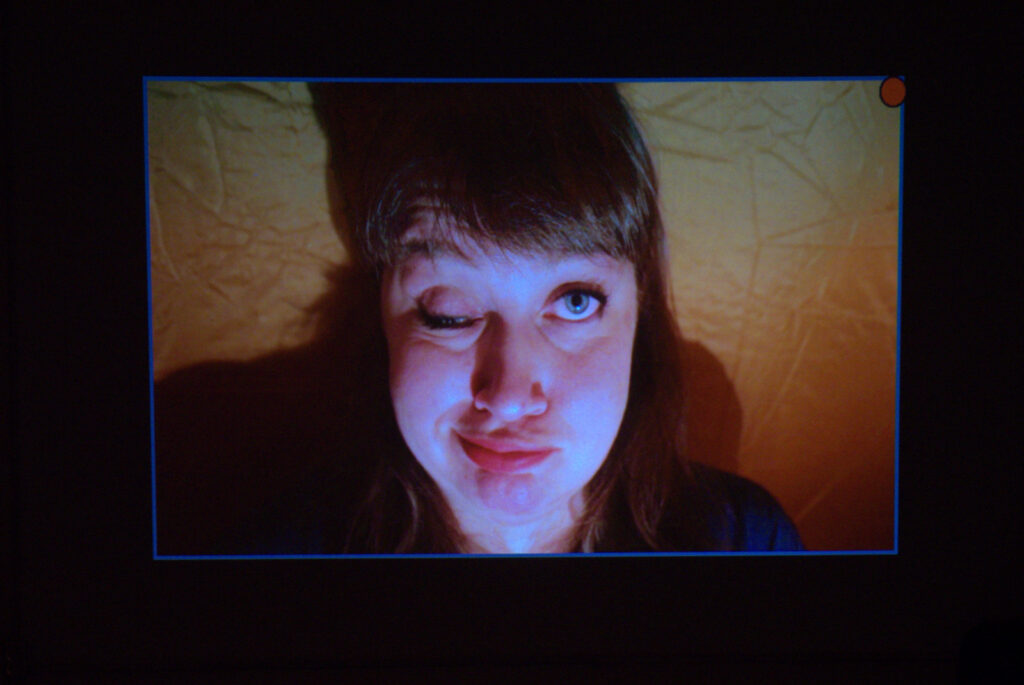
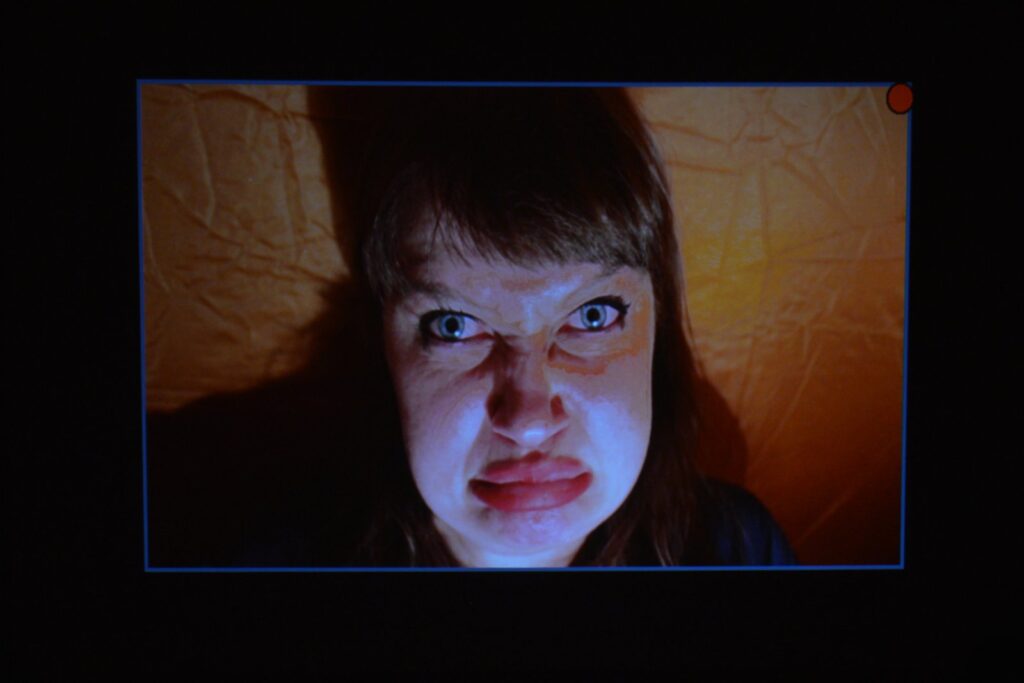
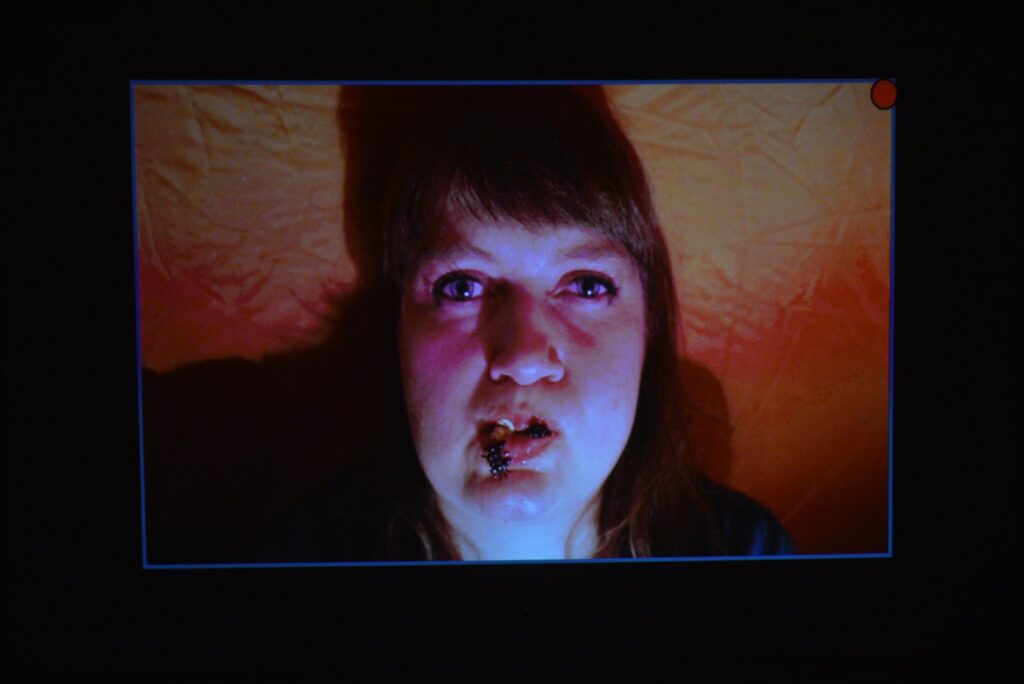
Her mouth quivers. Her eyes squint. As still as she was a moment before, now there’s an equal control over her facial contortions. With movements that seem to mimic the twists of the music you can almost imagine that she’s the instrument. She’s definitely doing the most (and first) melancholic face-dance I have ever seen. As the music builds, each note pulsing and making her eyes wider and her cheeks tighter, the humour here is apparent, but what’s also clear is that it’s not just for fun.
Mediating the space, giving herself an articulated place to perform her self, it occurs to me that if Liftig were to gape open her mouth in the same way she is popping out her eyeballs, the imagery would quickly turn horrifying. As it stands it is sometimes grotesquely alluring how she puffs out her lips, so I stare exclusively at her mouth for a while and her face transforms yet again. There is a sort of frenetic energy coming from behind her lips, and I notice this just before I realize that there’s something in there, and that something is coming out.
One by one, small props drop out of Liftig’s mouth. With each teeny toy piece that pops out, so too spills copious amounts of dribbling drool. Tiny bottles, a mini rifle, a plastic turkey, a lobster, a very wet gorilla, all spurt out like eggs being laid by a chicken or turtle. I’m reminded of how these are culturally-reified choking hazards, even though Liftig is clearly no child. Walking a fine line between entertaining us and freaking us out, Liftig has us on a razor’s edge but I don’t realize how paper thin this line is until the music stops. In the silence, the humour is immediately gone from her mouth, still full of plastic ants and saliva that glops off her chin. In the glistening of her eyes and the absence of the pulsing sound, we enter a void just for a moment before the light in the tent goes out. This ambiguous yet practical performance place within a space has ceased to be, and the pathos is stark. Liftig, for now, has decided to stop dancing and once again, represent her face to the outside world.
